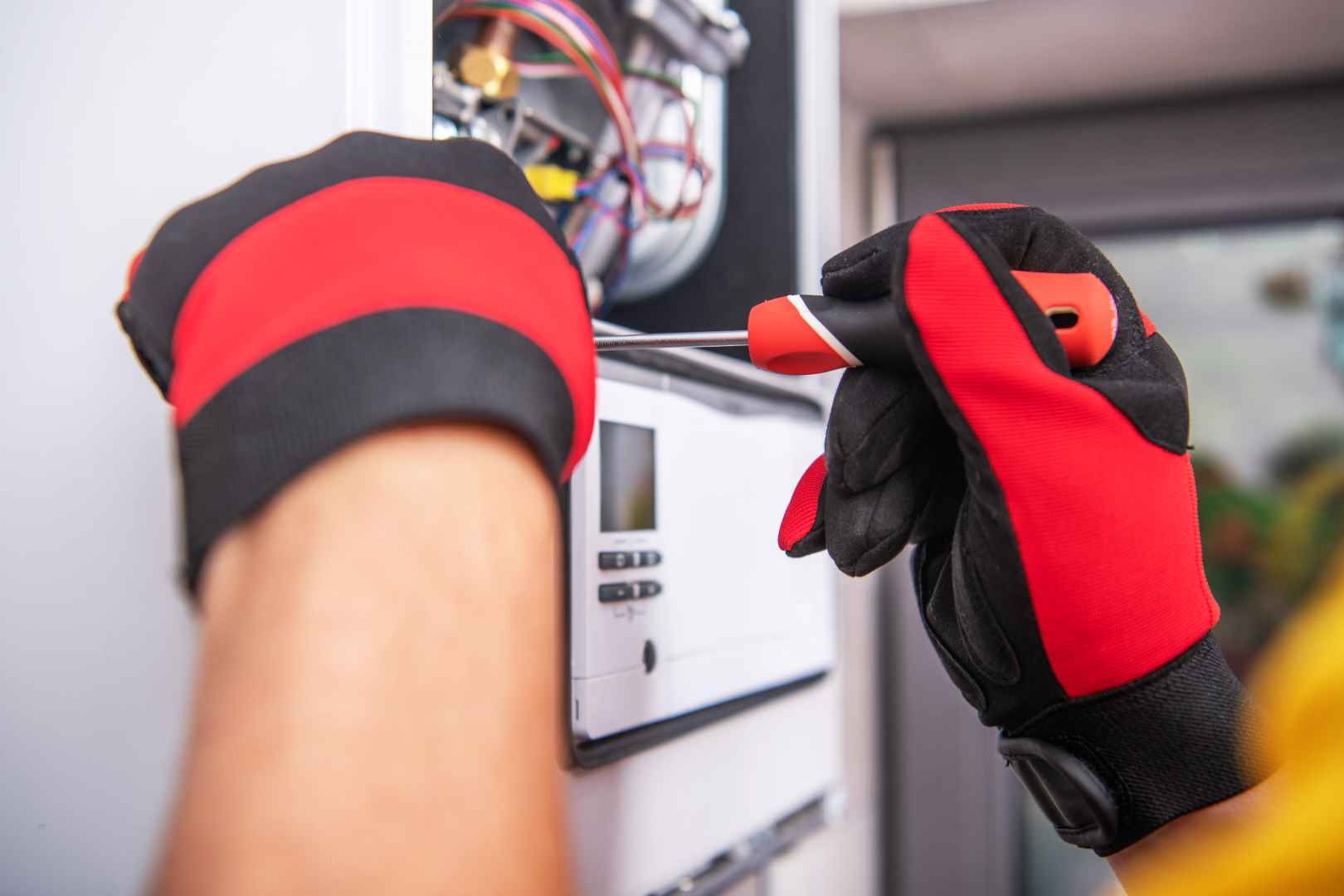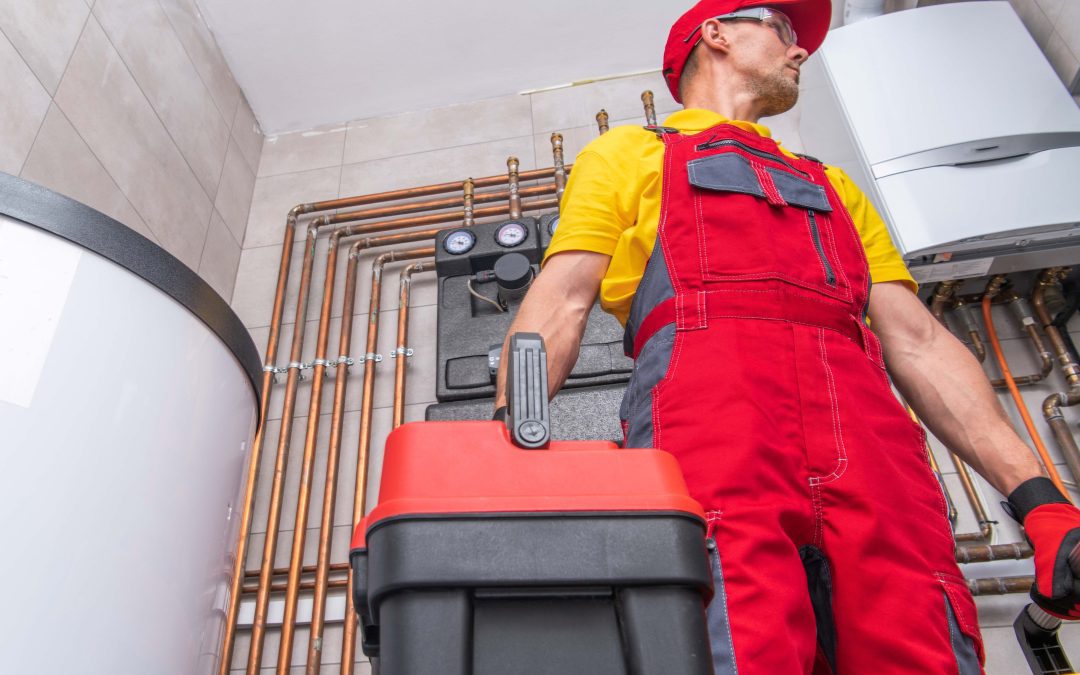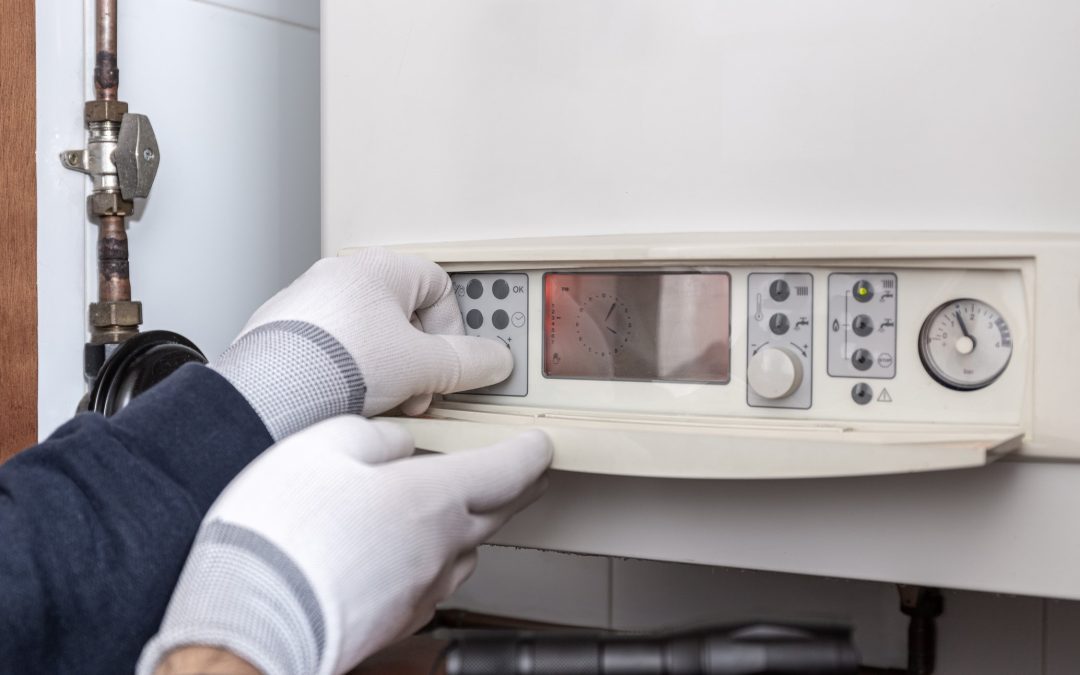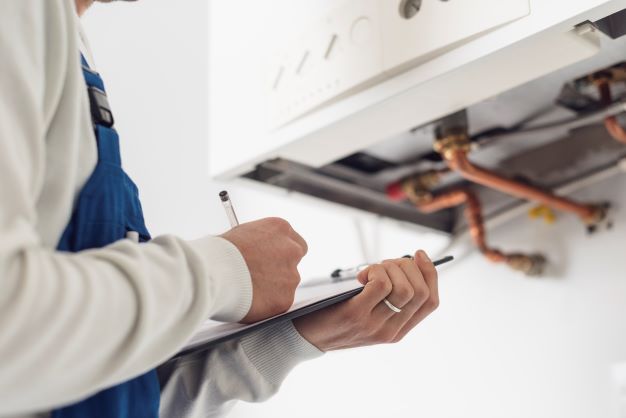An efficient and functioning boiler is essential for modern life.
Thank you for reading this post, don't forget to subscribe!However, boilers can, and do, break down.
And when they do, it’s a high priority to get them working again as quickly as possible. This is particularly true in the winter, when having a cold home can particularly challenging.
When a boiler does stop working as it should, an emergency boiler repair usually resolves the problem.
If your boiler is an older model, then you may wonder if one-off boiler repair is worthwhile, or whether it might be better to opt for a replacement.
How to tell if your boiler is broken
There are several indicators that your boiler may be broken and needs immediate attention:
-
No heating or hot water
If your central heating doesn’t activate when it should, or no hot water is coming out of your tap, it’s often a reliable indicator that your boiler has stopped working.
-
No pilot light, or pilot light has changed colour
If there’s no pilot light, and your boiler doesn’t fire up as expected, then this may indicate that it’s stopped working. Similarly, if your pilot light’s colour has changed from blue to orange/yellow, then turn off your gas supply and contact a Gas Safe-registered engineer.
-
Sudden increase in your gas bill
If your gas bill increases noticeably without an obvious reason, it could indicate your boiler is no longer working efficiently.
-
Noisy boiler
Banging or whistling noises every time the boiler fires up can indicate that it has a problem that needs attention.
-
Error message or warning light
Error codes on your boiler’s control panel indicate an issue, and their meaning can usually be found in the manufacturer’s guidebook. Some of these are simple to fix, while others will require an expert’s attention.
-
Dripping water from boiler
If you find water dripping from your boiler, this can indicate a range of problems such as damaged seals, corroded pipes, or a faulty heat exchanger. Contact an engineer to diagnose the issue and prevent further damage from being done.
Troubleshooting your boiler
If your boiler has stopped working, then basic troubleshooting may rectify the issue.
This includes checking the thermostat, power supply, and pilot light, as well as reviewing any error codes and checking the gas supply.
Many modern boilers have a reset button that, when pushed, restarts the system.
Details of how to do this should be available in the manufacturer’s instructions.
Not only that, many boilers operate within a specific pressure range. If the pressure is too low, or too high, it may affect the boiler’s performance.
If you identify any leaks of gas or water, then you should turn off your gas supply immediately and contact a Gas Safe-registered engineer.
However, beyond these steps, what else can you do to rectify a boiler breakdown?
Can I fix a boiler myself?
Anyone who considers themselves to be handy around the house, and able to carry out minor repairs and maintenance, might wonder if it’s possible to repair a boiler themselves.
After all, the internet grants access to a wide range of instructional videos on every subject under the sun, so it might be tempting to try and repair a faulty boiler.
However, when it comes to gas boilers, there are very good reasons why doing it yourself is a bad idea.
First, the Gas Safety (Installation and Use) Regulations 1998 state that only gas professionals or a Gas Safe-registered engineer can install, remove, repair or service boilers and other gas-related appliances.
As well as being illegal, any home repairs are likely to immediately invalidate your warranty.
Aside from the legal and warranty issues, attempting to repair a gas boiler without the necessary training, qualifications, and experience can also be highly dangerous.
Not only are most people unlikely to be able to identify and amend the problem, but any repairs incorrectly carried out increase the risk of an accident.
For that reason, emergency boiler repair should always be carried out by a qualified and trained gas engineer.
Who do I call for boiler problems?
If your boiler isn’t working properly, or has completely broken down, then any problems must be looked at and resolved as quickly as possible.
After carrying out basic troubleshooting and turning off the gas supply, if necessary, your next step is to contact a Gas Safe-registered engineer.
The Gas Safe Register is an official list of qualified gas engineers legally allowed to work on gas appliances in the UK.
They’re required to be professionally trained and up to date with the latest safety regulations.
Failure to use an engineer that’s Gas Safe-registered could invalidate your warranty.
It might also result in the problem not being correctly rectified, running the risk of further breakdowns and potential safety issues.
Although it may be tempting to try and rectify the problem yourself, or to allocate the task of an emergency boiler repair to someone who isn’t qualified, it’s never a good idea and could end up costing you more in the long run.
How do I find a good engineer?
-
Gas Safe Register
As mentioned above, any engineer you hire to fix your boiler should be Gas Safe-registered. You should be able to locate a suitably-qualified individual based nearby by entering your postcode on the Gas Safe Register. There, you’ll find an entry for Bumblebee Plumbing & Heating.
-
Reviews
Seek recommendations from friends, family, or neighbours who have had similar boiler issues. Additionally, check online reviews to assess the experiences of other customers with a particular engineer or company.
-
Insurance and guarantees
Does the engineer have insurance to cover the work they do and what guarantees do they offer? This protects both parties in case of accidents, or further damage to your boiler during the repair process.
-
Transparent pricing
Your engineer should provide transparent pricing and detailed quotes. Quotes that seem much cheaper than alternatives may indicate hidden charges. Always ask what will be included in the total price.
How much does it cost to fix a boiler?
The cost of fixing a boiler and emergency boiler repairs can vary significantly and is impacted by several factors.
Here’s a breakdown of some of the potential costs involved in emergency boiler repair:
-
Diagnostic fee
Boiler engineers may charge a call-out or diagnostic fee to assess a problem and then provide a quote for future repairs. This fee depends on the engineer, their company policy, and location, and can range from between £50 and £100.
-
Boiler repairs
There are a range of common boiler repairs that are relatively straightforward for trained engineers. This might include fixing faulty valves, replacing thermostats, or addressing ignition problems. These tasks vary in price depending on their complexity.
-
Replacing major components
Costs for a boiler repair can soon add up if major components, such as the heat exchanger or the pump, need to be replaced.
The cost of replacing a heat exchanger can be anywhere between £500 and £1,500, while a pump replacement could range from £200 to £400 – occasionally higher.
During the initial assessment, your engineer should tell you what’s required to get your boiler working again.
If major components need to be replaced, then this can extend the amount of time required for a repair.
In the meantime, it’s important to check your warranty to see what it covers.
In many cases, boiler warranties can last for 10 years, and cover you for major breakdowns and repairs.
Conversely, if your boiler is no longer covered by its manufacturer’s warranty, then it may be time to consider a boiler replacement.
Is it best to fix your boiler or replace it?
A boiler breakdown can be highly frustrating.
If your boiler is older and it keeps happening, or it’s no longer protected by a warranty, then you may be considering replacing it.
What factors should you consider when deciding whether to repair or replace your boiler?
-
Boiler’s age
If the boiler is relatively new, and the repair is a minor issue, it’s usually cost-effective to have it repaired. However, if it’s approaching the end of its typical lifespan, usually around 10 to 15 years, and requires a significant repair, then it might be a better option to invest in a replacement. New boilers tend to be more energy-efficient, so the initial outlay could be at least partially offset against reduced future energy costs.
-
Frequency of repairs
If your boiler is generally reliable, and hasn’t been prone to breakdowns, then repair for an isolated incident may be the most sensible option. This is particularly the case with boilers that have been installed within the past few years. However, if your boiler has a history of frequent breakdowns and expensive repairs, it’s probably more cost-effective to replace it.
-
Energy-efficiency
Older boilers tend not to be as energy-efficient as newer alternatives. Manufacturers have been prioritising innovations over recent years, meaning that upgrading to a new boiler could deliver long-term savings on energy bills. Newer boilers are also better for the environment than older equivalents precisely due to their increased efficiency.
-
Repair costs
The cost of repairing a breakdown should be weighed against that of installing a new boiler. If yours needs major components replacing, then it’s likely to expensive. Add to that the costs of labour, and it may be more cost-effective to simply replace the boiler with a new one. If your boiler is older and needs expensive repairs, then replacement will usually be the best option.
-
Safety concerns
If the boiler poses safety risks, and repairs cannot adequately address them, then you should have a new one fitted. Any gas appliance must be safe, and serviced at regular intervals.
In summary, and as a general rule, new boilers presenting with a minor issue that’s cheap and easy to rectify can usually be repaired.
Older boilers, and those no longer protected by a warranty, that require expensive or frequent repairs, will generally be better replaced.
Why is boiler maintenance so important?
There are number of sound reasons why you should schedule regular maintenance for your boiler, including:
-
Prevents breakdowns
Regular boiler maintenance can identify any potential problems, parts that need replacing, or other issues that, if neglected, may result in your boiler breaking down.
-
Safety
Faulty boilers can pose a range of safety issues, from carbon monoxide poisoning to the risk of fire and – in worst-case scenarios – even explosions. Regular maintenance ensures that your boiler is operating safely.
-
Reduced bills
Inefficient boilers have to work harder to provide you with warmth and hot water, making them more costly to run. Regular maintenance keeps your boiler working efficiently and keeps your bills down.
-
Longer service life
Well-maintained, regularly serviced boilers keep working for longer. To get the maximum longevity from your gas boiler, an annual service is essential.
Regular boiler maintenance keeps your boiler working efficiently and safely for longer, keeping your bills lower and ultimately saving you money.
Emergency boiler repair near me by Bumblebee Plumbing & Heating
At Bumblebee Plumbing & Heating, we understand how important it is to get your boiler up and running again as quickly as possible.
Combining experience and know-how backed by competitive pricing, our team can be on hand in Warrington, and at addresses across the North West of England, in no time at all.
We also provide a comprehensive boiler servicing service that can identify any issues before they have a chance to become a problem.
This can minimise the risk of breakdowns and keep your boiler working efficiently for longer.
If you’re looking for reliable and affordable boiler repair near me then we’re ready to help.
Contact us today and request a quote, or to find out more about an annual boiler service or repairs.




